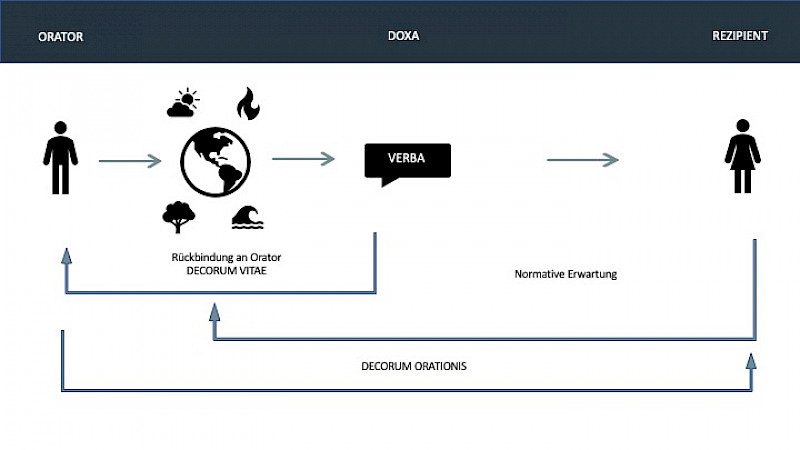Aristotle stipulates man as a ζῶον λόγον ἔχων , i.e. as a living being that has λόγος, and one that perceives the world through his senses. This impacts how he sees the objective world of res, be it the see, mountains, humans or things that are presented to him in a specific kind of way and thereby shaping his mindset (δόξα according to Isocrates). This mindset and his view of the world come to the fore in the verba used by the orator. However, these verba are spoken to a recipient who holds his own view of the world therefor necessitating in advance the consideration of those views through gauging the audience’s subjective perception (decorum orationis).
Once an orator holds a speech, he is also unlocking concepts of his subjective understanding of the world. Thus, even though he is speaking to an audience, his verba are also a reflection of himself as an orator and how he sees the world (decorum vitae). How his audience is reacting to his verba is dependent on the rhetorical strategy of the orator via the gauging of the audience which sustains the appropriateness to the situation at hand (decorum orationis). Appropriateness operates as a criterion due to its ability to ensure a suitable linguistic code and it operates as a principle due to its function as an ethical norm. Who gets to decide what is appropriate and what not? It depends on the judgement of the orator and the recipient in their role of communicators.
